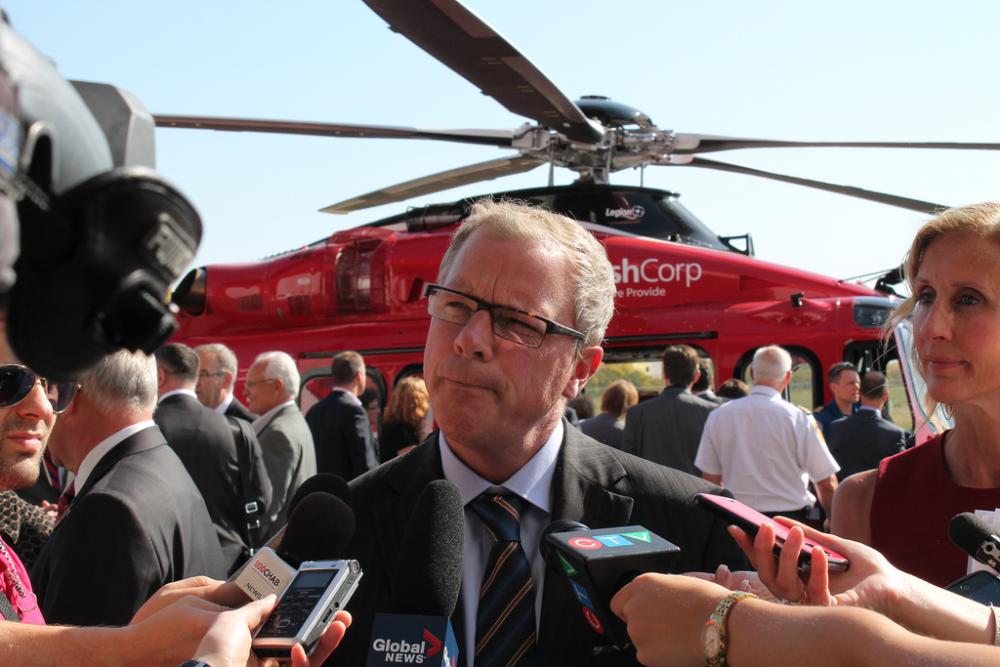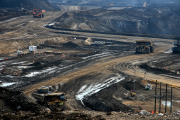Premier Brad Wall of Saskatchewan is injecting an appealing, yet dangerous, set of ideas into Canada’s climate change debate. The appeal lies in the promise that not much needs to change for Canada to address the threat of climate change. The danger stems from his proposed solutions, which would undermine efforts to fight climate change and expose our economy to unnecessary risk. As the country’s First Ministers work toward a pan-Canadian climate framework, they need to reject those false solutions and make progress on the hard work that needs to be done.
Three examples illustrate how Premier Wall’s ideas run counter to Canada’s interests.
First, his proposal that Saskatchewan (and by extension Canada) should get credit for exports of uranium is plagued by inconsistencies. It ignores the fact that the countries we export energy to have their own commitments to reduce carbon pollution. If they choose to use uranium from Canada to meet those commitments, it doesn’t absolve Canada from its commitments. The proposal also fails to mention carbon pollution that Canada exports through oil, gas and coal — an amount roughly equal to the country’s domestic total. If Premier Wall believes Canada should receive credit for uranium exports, does he also support debits for those fossil fuel exports?
Not to say that Canada shouldn’t be pursuing exports that help other countries meet their climate change commitments. We absolutely should; growth in the $1.3-billion global demand for clean energy represents a huge opportunity that can help Canada replace markets for coal, oil and gas that will be in decline as the world moves away from fossil fuels. According to the International Energy Agency, 95 per cent of the growth in energy demand between now and 2040 will be met with energy efficiency, renewables and nuclear power if the world effectively responds to the threat of climate change. Canada’s economic plans should be firmly focused on that opportunity — but we shouldn’t argue that the economic benefits absolve us from our domestic responsibilities.
A second fallacy in Brad Wall’s solution set — and potentially the most damaging — is the idea that Canada should withdraw its $2.65 billion in climate financing to poorer countries. That money is intended to help those countries adapt to climate change and leapfrog to cleaner energy systems, and should be viewed as one of Canada’s moral obligations. The world’s developing countries are the least responsible for climate change, yet they will be the most impacted and have the lowest means to deal with the impacts. International climate financing is a central tool for wealthy countries — Canada included — to acknowledge and begin to address that wrong.
Pulling back that international support — even if it was redirected to domestic research into low-carbon technologies — would irreparably damage international climate negotiations if other wealthy countries took a similar approach. Canada would benefit from increasing that domestic research, but paying for it by walking away from our obligations to the world’s poor and undermining global progress on climate change would be counterproductive to say the least.
Shifting to a domestic front, Premier Wall insists on confusing the important debate about carbon pricing. Despite overwhelming evidence that carbon pricing accelerates the shift to zero-carbon energy sources while supporting a strong economy, he argues to the contrary and misrepresents numerous carbon-pricing supporters (the Pembina Institute included) in the process. Whether through carbon taxes or cap-and-trade systems, carbon pricing should be an important plank in effective climate change plans.
Thankfully, the federal government and a growing number of provinces representing more than 80 per cent of Canadians — including Ontario, Québec, Alberta and B.C. — have moved past the yes-or-no debate on carbon pricing, and are focused on more important issues such as how to invest the revenue. Getting those decisions right will help provinces target their specific opportunities and challenges, and strengthen overall provincial and national efforts to fight climate change. Staying mired in a debate where others have moved on will leave Saskatchewan ill-prepared for the global energy transition that is underway and delay important decisions on how to best invest in the province.
Much is riding on the emerging pan-Canadian climate framework. Will it include provincial and federal policies to put us on track to keep our commitments to cut carbon pollution? Will it enable Canada to contribute meaningfully to global momentum? Will it position our economy to respond to the challenges and opportunities that a changing global energy system will present? If the country follows Premier Wall’s dangerous ideas, the answers will be no. Canadians expect and deserve better, and it’s up to Prime Minister Justin Trudeau and his provincial and territorial counterparts to deliver.
This article originally appeared in iPolitics.







